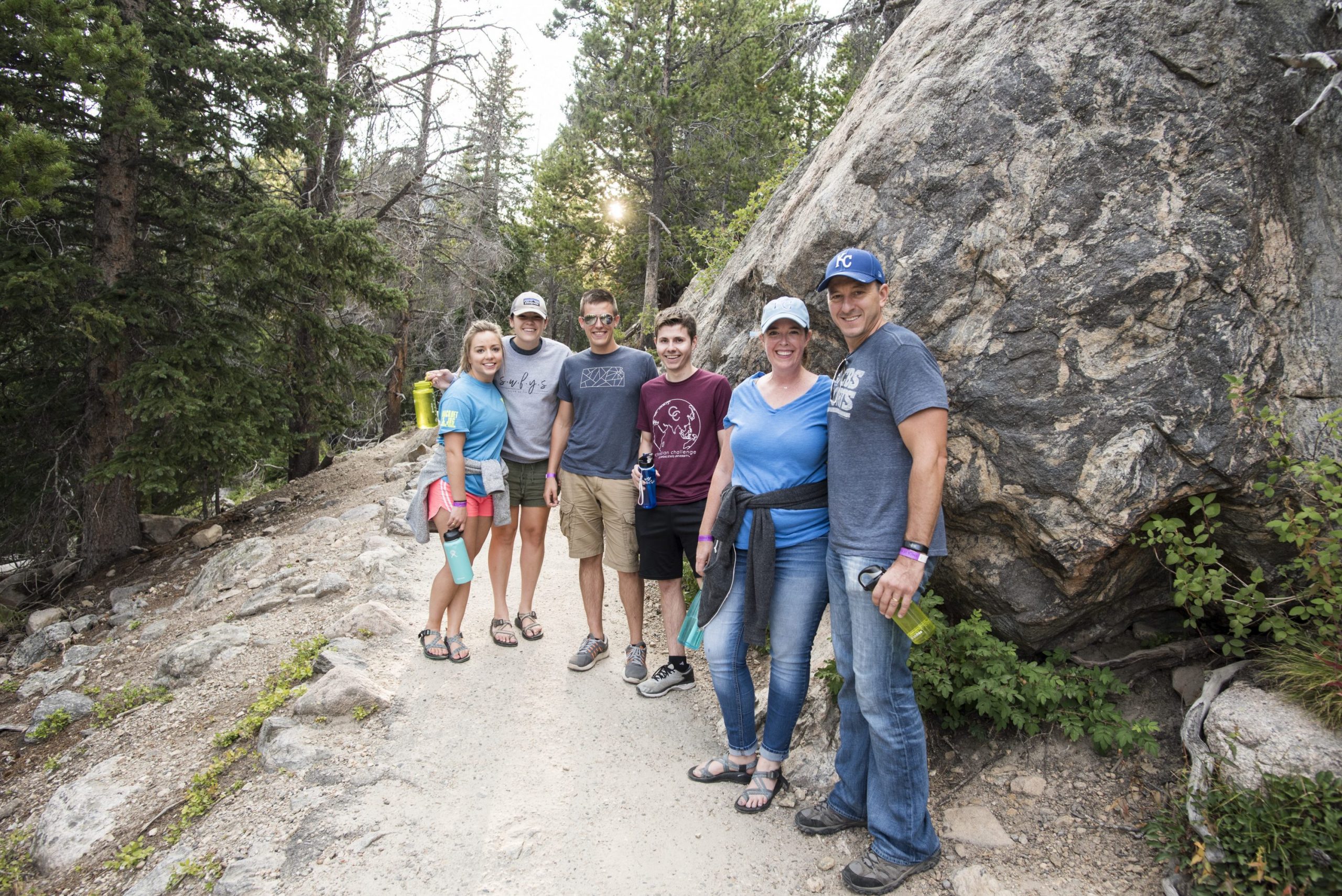
Learning About Prayer With the Navigators
This week, I crammed in the back of a mini-van and embarked on a short Colorado roadtrip to experience not only the beautiful mountains but also that mountain of a ministry known as The Navigators.
Our trip (which included seven other Christian Challenge staff and interns) began amidst the profuse insistence of the director of Challenge that his mini-van would be more than adequate for not only the seven of us to travel, but also would allow for picking up his son from a summer camp near Colorado Springs. Well, I had my suspicions that his rosy-eyed mini-van infatuation might not live up to the hype! Needless to say, eight hours later, after subjecting my poor, now sweaty and not just a little sore behind to the most uncomfortable back-middle seat, I didn’t exactly see eye to eye with my starry-eyed leader’s vision for his vehicle. However, amidst my backseat behind woes, the ride was filled with laughter and meaningful conversation that saw our arrival in good spirits.
Our trip allowed for about a day of hiking in the mountains near Estes Park – which was a wonderful reminder of the vast and magnificent creativity of God – though I did spend much of that time personally working on writing support letters and thank you notes. Even so, it was a much-needed break from all the distractions and things to do back at home in Manhattan, KS as the beginning of the semester draws near.
After spending time in nature, the next two days included three encounters with different Navigators, and I’d like to highlight one thing I learned from each of them, in several successive posts. Here’s the first idea:
‘Short’ Doesn’t Mean ‘Lacking Substance’
During our second evening, we were able to observe one of the weekly training sessions that the Navigators were hosting for their summer training program in Estes Park. The speaker was a Navigators staffer from Colorado State University. Even amidst an intriguing life story that involved growing up around the Italian Mafia in Chicago, I was most struck by a simple statement he made: “Pray short.”
The speaker’s claim is a far cry from much of what we see around us in the Church – indeed, even as I’m reading through Metaxas’s recently-published biogrophy on Martin Luther, my mind was drawn (and almost immediately thereafter the speaker also referenced) Luther’s famous quote – “I have so much to do that I shall spend the first three hours in prayer.”
Oftentimes, there seems a common sentiment within the Church that, to truly be committed to the mission of God and near to him in spirit, we must daily undertake devoting copious amounts of time to the practice of the spiritual disciplines. The speaker highlighted that tendency specifically in connection with the discipline of prayer, but it is possible I have observed this mentality in my own life regarding reading the Scriptures. The ensuing risk of such a disconnected view of the rest of daily life from the practice of spiritual discipline is one of a works-based, self-condemning hyper spirituality.
One morning, after waking up at 4 or 5am to spend an hour or two in prayer and another reading the Bible, the speaker mentioned how his wife confronted him about always being so “crabby.” “Well,” the man said, “what am I doing wrong – I already spent several hours in prayer today!” “Maybe if you would have spent some of that time sleeping,” his wife replied, “you wouldn’t be so crabby!” Ultimately, the man realized it wasn’t about how much he prayed, but rather the quality of the prayer. After all, he proceeded to explain to us, the Lord’s prayer Jesus modeled for his disciples clocks in at just about 11 seconds (check it out for yourself!).
The message in that session really spoke to me – not to diminish the deliberate dedication of specific, ordered moments in prayer throughout life – but instead as a reminder that, more than setting aside hours upon hours each day to pray, study the scriptures, or otherwise (although I believe there are some whom God bestows his grace on so richly that they posses such time), God desires for us to be prayerful (1 Thess. 5:16-18), meditating on the Scriptures (Josh. 1:8; Ps. 1:2), and considering his purposes (Ps. 63:6; Ps. 143:5) in everything we do!
The beauty of the Christian life is that our everyday, material life is not disconnected from the spiritual, but rather deeply interconnected. This truth proves to be a great joy because it means whatever we do, we can truly do it as though we are doing it for the Lord (Col. 3:17;23-24), and find meaning in some of the most seemingly mundane tasks. Not every Christian is called to pray alone three hours a day!
I think of the profoundly simple words of Brother Lawrence:
“The time of business does not differ with me from the time of prayer; and in the noise and clatter of my kitchen, while several persons are at the same time calling for different things, I possess God in as great tranquility as if I were on my knees.”
It may not be an easy task for us to earnestly desire unhindered time alone with God; but let us even more earnestly desire that our time not alone with God be also unhindered so that we, in every moment, partake in the greatest – freely-given and yet costly – grace bestowed on us who believe in Jesus Christ: the perfect, unceasing mediator between man and God.